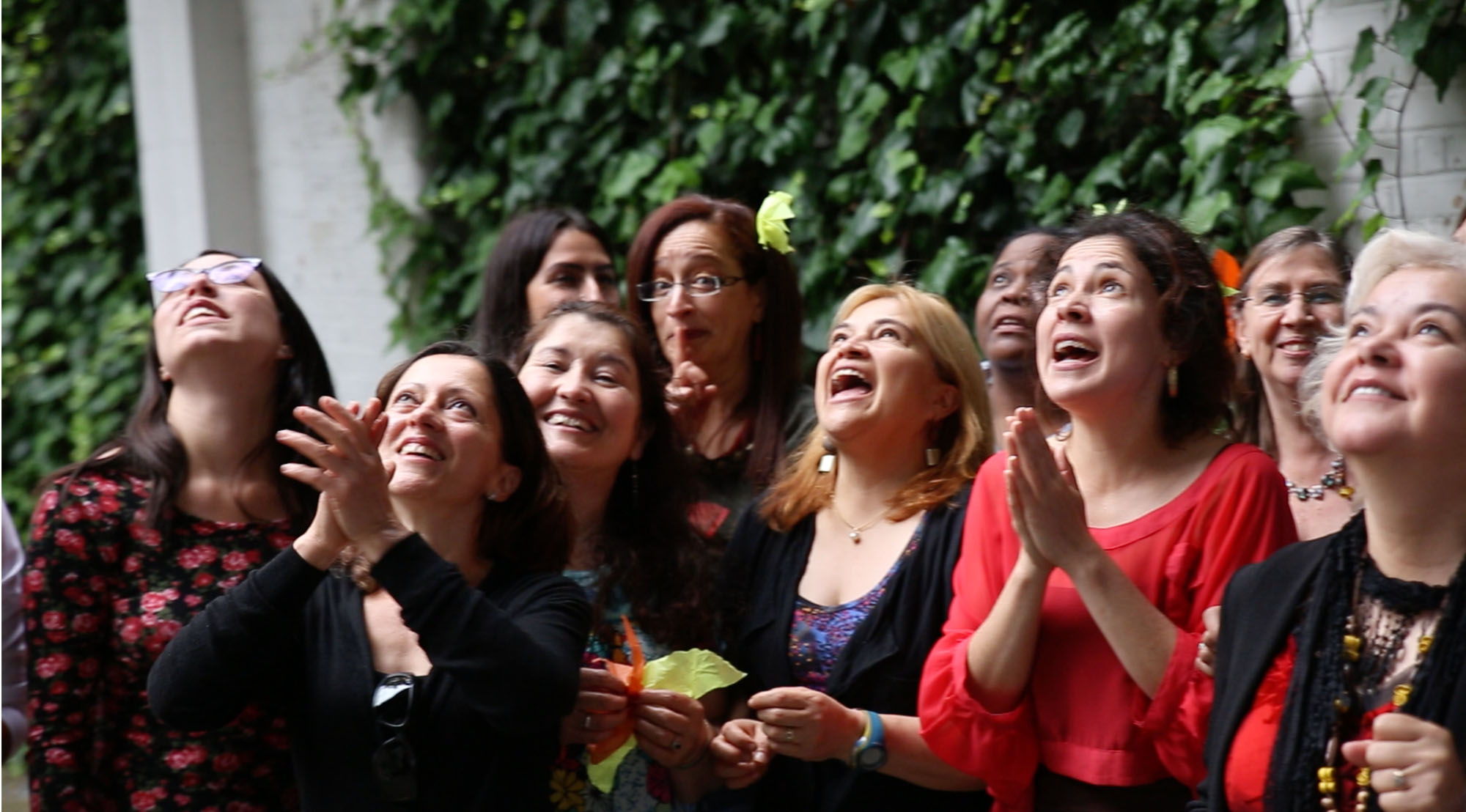Over the last decades, millions of men and women, many direct victims of war, have left Colombia in search of a better future. However –beyond economic remittances- Colombia´s diaspora remains largely invisible as a social and political actor, in Colombia and abroad. As Colombia faces the task of rebuilding its historic memory in order to overcome a violent past and build a peaceful future, Colombians abroad are organising in order to be part of this collective opportunity.
In 2014 a group of women created the Truth, Memory and Reconciliation Commission of Colombian Women in the Diaspora (TMRC) in London and Barcelona, with support from Conciliation Resources. The initiative supports the healing of trauma caused by conflict and migration and promotes women’s empowerment. The group has developed an innovative methodology of «active memory», documenting the war and migration experience through public testimonies and group analysis, highlighting women´s agency beyond victimhood. Furthermore, they transform the testimonials into exhibitions, films, music, poetry and theatre, and some will contribute to formal truth, memory and reconciliation processes in Colombia.
Through a largely voluntary process this informal Commission has achieved: Psycho-social healing, empowerment and reconciliation among around 400 participants, critical analysis of categories related to truth, memory and reconciliation and identifying patterns among women in the diaspora
The Commission has also identified the difficulty for diaspora to access international funding to work for peace and human rights from abroad and is appealing to the donor community to adjust their calls for proposals to include the diaspora.
The work of the Commission is now being replicated in Stockholm, Oslo and Brussels. Helga Flamtermesky, the coordinator of the TMRC describes the goal of the commission as follows: «The Commission seeks to turn women’s experiences into knowledge and that knowledge into tools that can be transferred to other women.»


